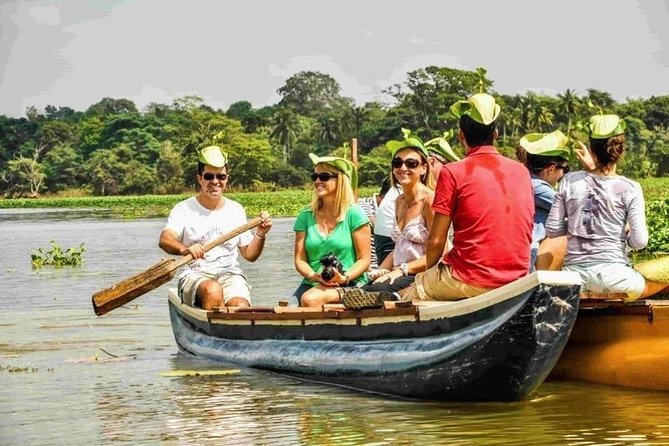While Sigiriya’s majestic Lion Rock draws global attention, there’s another side to this region that often goes unnoticed — the warmth, culture, and hospitality of Sinhala village life. To truly understand Sri Lanka, you must step beyond the tourist trail and walk into a traditional Sinhala home.
That’s exactly what this Sinhala Traditional Home Tour Package in Sigiriya offers: an authentic, intimate experience of Sri Lankan culture, food, customs, and community, all from within a family home.

🌿 What to Expect in the Traditional Home Tour Package
This immersive cultural experience is perfect for travelers who want more than just sightseeing. It includes:
🏠 Home Visit to a Local Sinhala Family
Step inside a real rural home built with mud walls, clay floors, thatched or tiled roofs, and open kitchens. These homes reflect centuries of traditional building techniques adapted to the tropical climate.
🍛 Cooking Session & Traditional Meals
Get hands-on with a Sinhala cooking demonstration. Learn how to grind spices on a stone, cook jackfruit curry, and roast coconut sambol. Then, enjoy a freshly cooked home-style lunch served on a banana leaf, eaten the traditional way — with your hands.

🪔 Cultural Demonstrations
Experience:
- Traditional farming tools and techniques
- Use of the bullock cart
- The “Gemi Gedara” (village home) structure and layout
- Local herbal remedies and ayurvedic practices
👕 Try on Traditional Attire
Dress up in Sinhala-style sarongs and osari (sarees) for women, and get a feel of the clothing used during religious ceremonies and festivals.
🎶 Folk Music & Dance (Optional Add-On)
Depending on the package, you may get to enjoy live performances of Sinhala folk music, Kandyan drumming, or dance performed by local youth or elders.
🇱🇰 Understanding Sinhala Traditions
The Sinhalese people form the majority ethnic group in Sri Lanka, with a history that stretches back over 2,500 years. Their culture is deeply influenced by Buddhism, agriculture, and communal living.

Key Aspects of Sinhala Tradition:
🛕 Religion & Rituals:
Daily life revolves around Buddhist teachings and temple rituals. Offerings of flowers, oil lamps, and incense are part of everyday devotion.
🌾 Agriculture-Based Life:
Traditional Sinhala communities rely heavily on rice farming, home gardening, and natural irrigation systems. Farming festivals like Aluth Sahal Mangallaya (New Rice Festival) are celebrated with joy.
🎉 Festivals:
The most celebrated Sinhala festival is Sinhala and Tamil New Year (Avurudu) in April. Homes are cleaned, traditional games are played, and families come together to cook festive meals and exchange gifts.
👨👩👧 Family Values & Hospitality:
Sinhala households are tight-knit and known for genuine hospitality. Visitors are treated as honored guests, with warm welcomes, shared meals, and storytelling by elders.
🎨 Art & Craft:
You’ll often find handmade clay pots, woven mats, palm-leaf baskets, and traditional masks used for rituals and healing practices.
🚌 How to Book the Sinhala Home Tour Package in Sigiriya
These cultural experiences are usually organized by local tourism co-ops or guesthouses and can be arranged as:
- Half-Day Tour (3–4 hours)
- Full-Day Immersion with Lunch & Cultural Add-ons
- Overnight Homestay Option (with evening temple visit or bonfire)
Included: Local guide, home visit, cultural activities, traditional lunch, and pick-up/drop-off within Sigiriya area.
Estimated Price: ₹1,500 to ₹3,000 per person depending on the package.

✨ Why This Experience Is Special
While climbing Sigiriya shows you the glory of Sri Lanka’s kings, visiting a Sinhala home shows you the soul of its people.
It’s a chance to slow down, share a meal, laugh with locals, and experience what it really means to live in rural Sri Lanka. You’ll leave with more than just photos — you’ll carry home memories and stories from the heart of the island.

